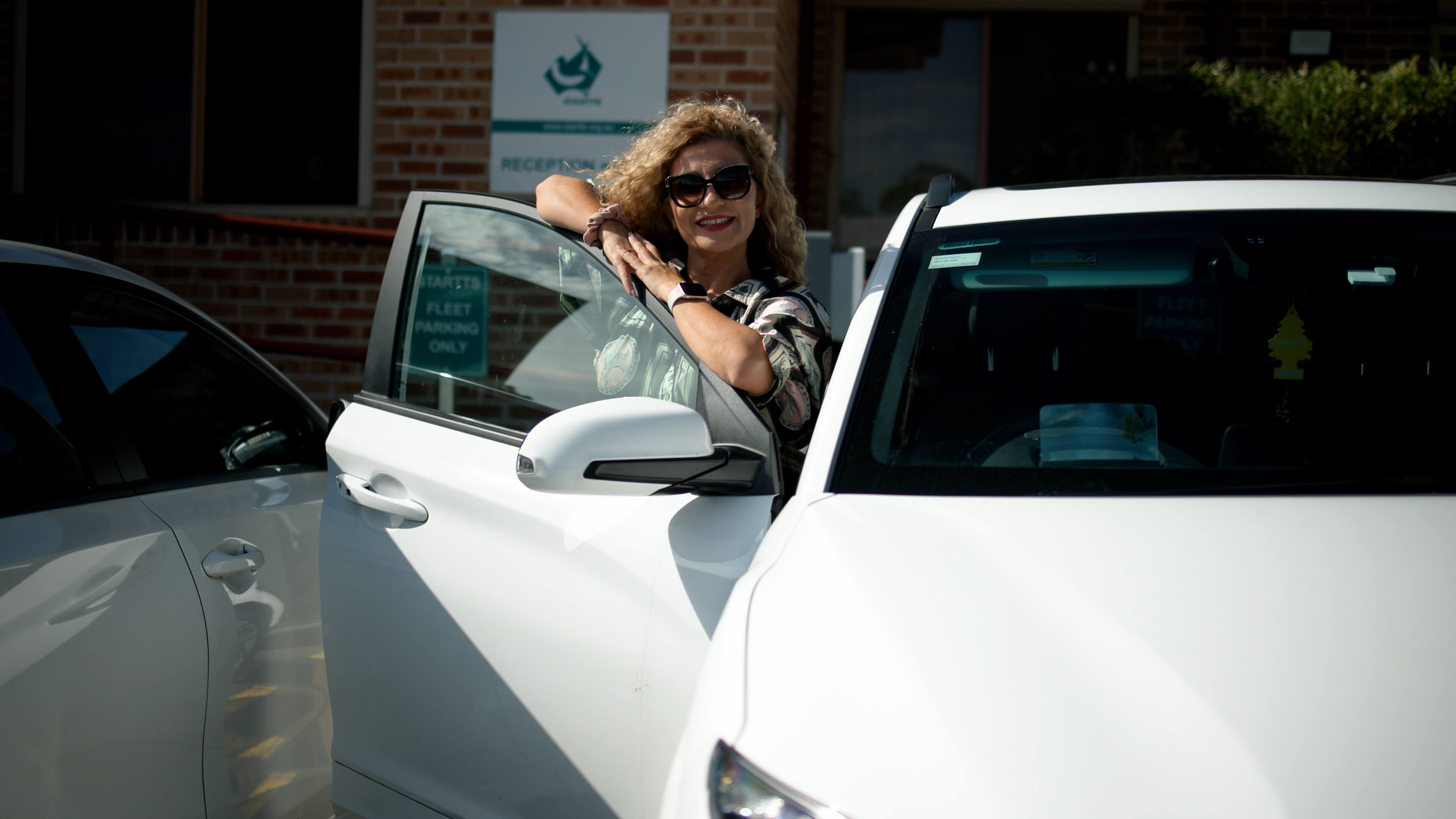STARTT's top tips for fleet managers
- Start small, scale up: a pilot program allows for testing and gradual implementation.
- Invest in infrastructure: strategically placed charging stations ensure efficiency.
- Educate and engage staff: addressing concerns early helps ease the transition.
- Consider long-term savings: lower fuel and maintenance costs make EVs a smart financial choice.
- Align with sustainability goals: reducing emissions enhances corporate responsibility and brand reputation.
- Leverage government incentives: the NSW EV fleets incentive can make the transition more affordable.
The NSW Service for the Treatment and Rehabilitation of Torture and Trauma Survivors (STARTTS) is a purpose-driven organisation that is unlocking cost benefits and living their values by transitioning to an electric vehicle (EV) fleet.
"Sustainability is not just a buzzword; it’s a responsibility. By taking proactive steps today, businesses can drive real change for the future." – Jorge Aroche, STARTTS CEO
STARTTS provide treatment, support and community interventions for refugees who are rebuilding their lives in Australia. They have 11 offices across NSW, and identified EVs as a crucial part of their strategy to reduce their environmental impact.
Funding to help turn values into actions
With the help of funding from the NSW EV fleets incentive, STARTTS has been able to introduce 22 EVs to its fleet of 69 vehicles. The introduction of these vehicles has reduced fuel and maintenance costs, alongside their overheads and emissions.
"It wasn’t just about reducing emissions - it was about aligning our actions with our values."
The incentive also enabled them to install charging infrastructure at some of their sites. By the end of 2025 they are aiming to switch the majority of their fleet of passenger vehicles and 4WDs to EVs.
Overcoming range anxiety and addressing concerns
STARTTS noted that their transition to EVs wasn’t without hurdles. Some staff were concerned about the range and suitability of the vehicles. However, a phased transition, easy access to charging stations and considered planning has seen this anxiety diminish.
"Once drivers experienced the smoothness and efficiency of EVs, the hesitation disappeared. Now they’re enthusiastic advocates for the transition." – Yassmen Yaya, Senior Project Officer and Community Engagement Specialist Witness to War

Support from the NSW EV fleets incentive
The NSW EV fleets incentive, a state government program designed to help businesses fast-track their shift to electric vehicles, was a key enabler of STARTTS' transition. The incentive provides funding to cover part of the upfront purchase price gap between an EV and an equivalent Internal Combustion Engine vehicle.
The funding also helped STARTTS install smart chargers at key locations, ensuring efficient operations.
"Accessing the NSW EV fleets incentive was a game-changer for us. It allowed us to bridge the financial gap and make the transition more feasible. Without that support, the upfront cost might have been a significant barrier."

Realising the financial and operational benefits of EVs
The organisation has found that its initial investments have been offset by long-term savings. "The cost of installing charging stations is being offset by fuel savings and lower maintenance costs," Jorge says. "EVs require less servicing than traditional vehicles which means long-term financial benefits. There’s also less fleet administration required because the cars don’t need to be booked in for regular servicing; no one needs to spend hours coordinating that."
Transitioning to an electric fleet is allowing STARTTS to spend its resources more effectively, while living their values through positive action.
Learn about the EV fleets incentive